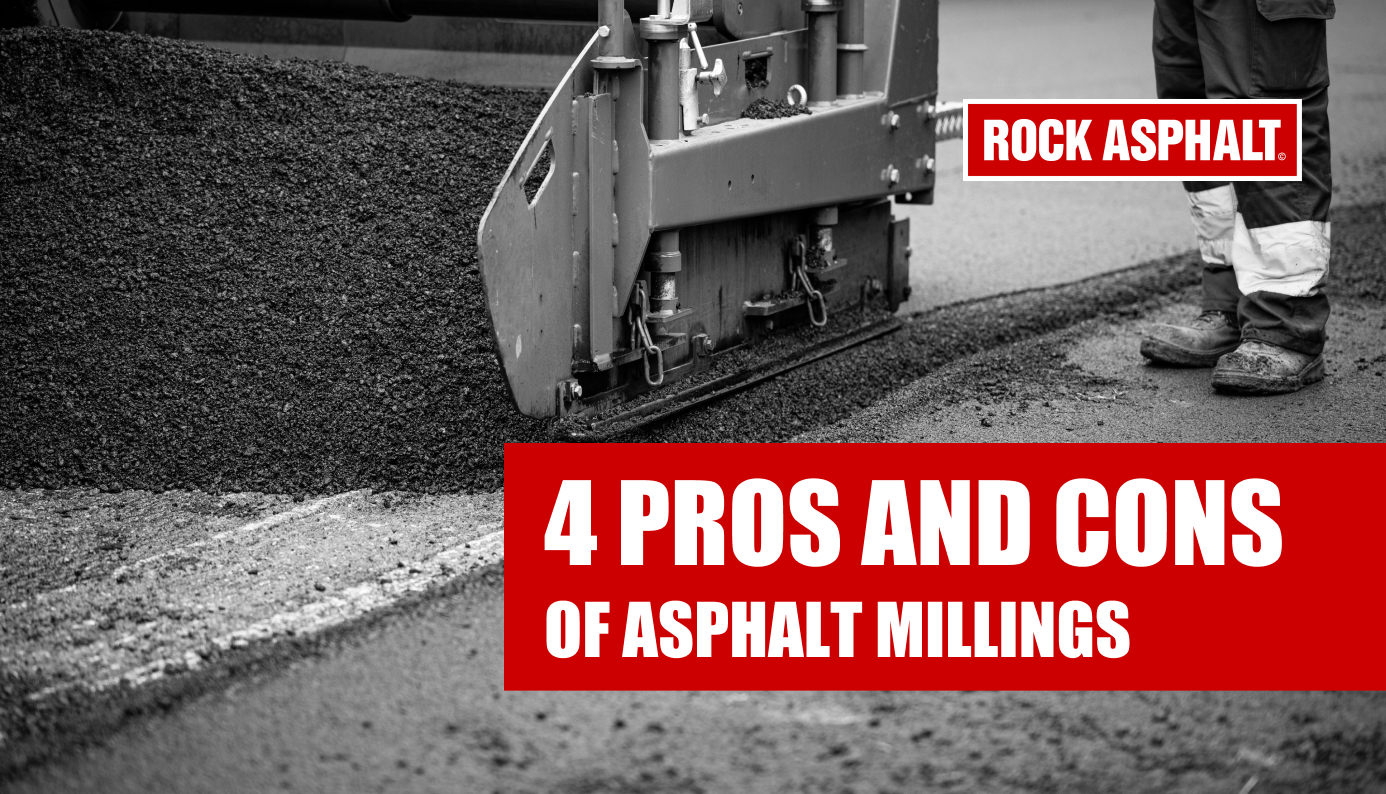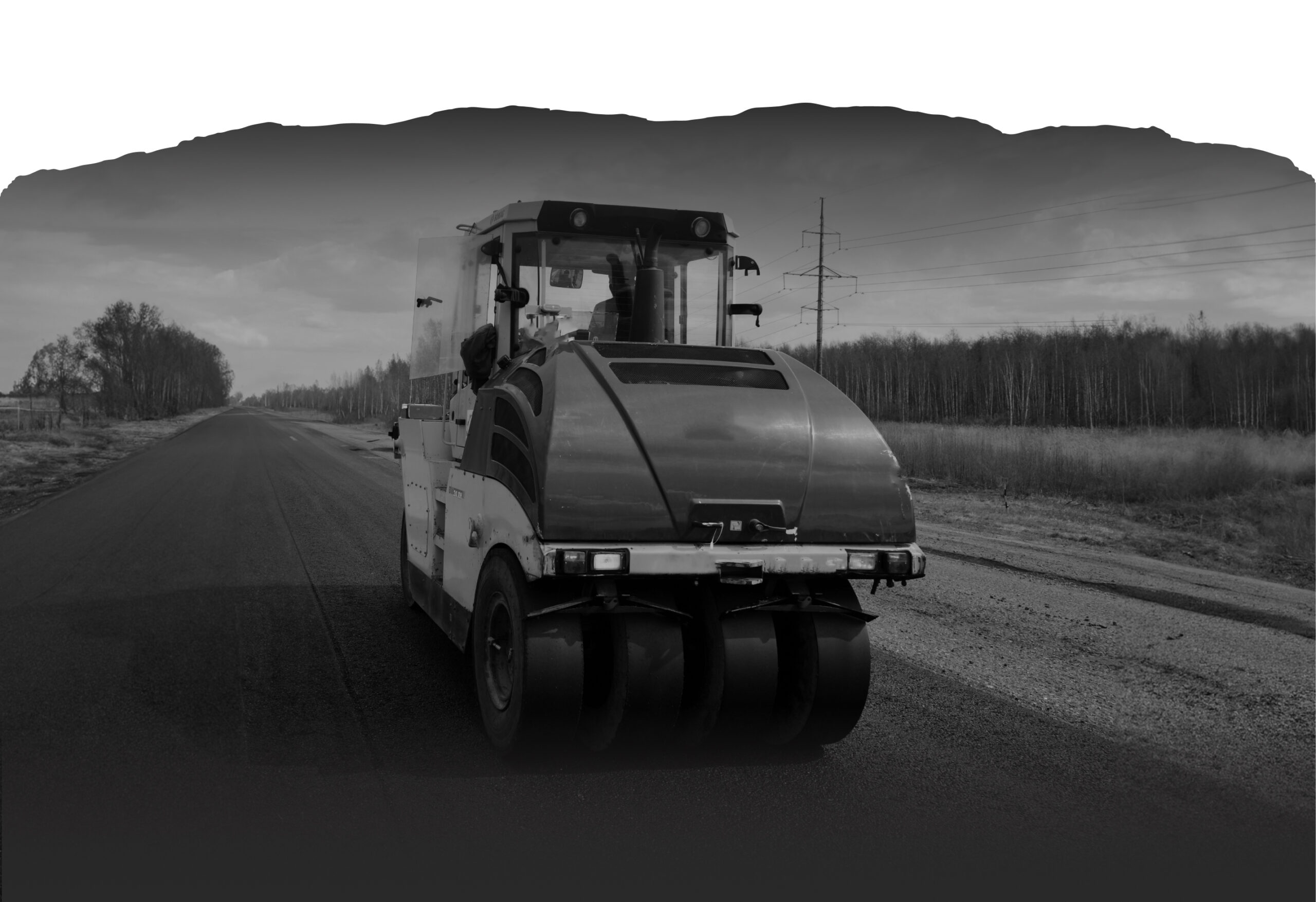4 Pros and Cons of Asphalt Millings

Asphalt millings, a cost-effective alternative to traditional asphalt paving, have gained popularity as an eco-friendly and sustainable paving solution. Asphalt millings are the result of removing and collecting the top layer of existing asphalt with a cold planer or milling machine. This process levels the existing pavement and remedies surface layer deformations before a new top layer of asphalt is applied.
After the asphalt millings are collected, they undergo a recycling process. The collected asphalt is crushed into smaller aggregates and screened for contaminants such as dirt and debris. Once the screening is complete, the millings are mixed with a binder for enhanced durability. By reusing and recycling existing asphalt, the production of asphalt millings reduces the demand for new materials and minimizes waste, making it a sustainable choice for paving projects.
When it comes to asphalt paving, it’s important to decide on the right material for your project. Besides traditional hot mix and cold patch, one alternative to consider is recycled asphalt millings. While this eco-friendly approach has gained popularity, it’s crucial to understand the pros and cons of the material before choosing asphalt millings for your next project.
Pros of Asphalt Millings
1. Asphalt Millings Offer Affordability
One of the most enticing benefits of asphalt millings is its lower price tag compared to fresh asphalt. The production of new asphalt requires the combination of mining, refining, and mixing raw materials. Rocks are crushed and blended into specific aggregates and crude oil is refined into bitumen as a binder. As a recycled material, asphalt millings offer substantial cost savings by eliminating a large portion of this production process.
This makes asphalt millings an attractive option for homeowners or businesses looking to undertake paving projects on a tight budget. On average, asphalt millings cost $10 – $20 per ton. Compared to hot mix asphalt that can range from $40 – $80 per ton, this recycled material is a significantly cheaper alternative.
2. Asphalt Millings Are an Eco-Friendly Approach
Asphalt millings are quickly gaining popularity as an eco-friendly and sustainable asphalt paving solution. By reclaiming existing asphalt, materials previously discarded in landfills are reused, promoting waste reduction and proper resource management. This not only reduces landfill waste, but conserves natural resources.
Asphalt millings eliminate the need to further mine for aggregates and refine crude oil, reducing energy consumption and greenhouse gas emissions. As a result, the carbon footprint associated with utilizing this recycled material is noticeably smaller, contributing to a more sustainable future. The practice of recycling asphalt millings reduces environmental impact and promotes a greener approach to asphalt paving.
3. Asphalt Millings Are a Durable Paving Solution
Asphalt millings offer remarkable durability. Thanks to their composition, which includes crushed aggregate and binding additives, asphalt millings ensure a strong, stable surface that can withstand heavy traffic and inclement weather. By compacting the material, the existing bitumen in asphalt millings acts as a cementing agent, bonding the aggregates together.
Similar to new asphalt, proper application helps reduce cracks and rutting, prolonging the lifespan of the surface. This durability reduces maintenance requirements and can lead to long-term savings in terms of repair and upkeep.
4. Asphalt Millings Are Versatile and Fast to Apply
Asphalt millings are also exceptionally versatile and fast to apply in comparison to traditional asphalt, such as hot mix. Whereas hot mix requires extensive preparation, ideal temperatures, and 72 hours to harden, asphalt millings generally take around 24 hours to fully harden, depending on the application. While it’s common to heat this material before application, there are various, faster methods.
Because asphalt millings are already crushed into smaller aggregates containing bitumen, adequate compaction with a roller will bind the material together. Additionally, older asphalt millings that have lost oil due to oxidation can use the aid of a rejuvenator, a chemical additive made of up binding additives. This versatile material not only accelerates the paving process but also reduces the overall disruption caused by roadwork.
Cons of Asphalt Millings
1. Asphalt Millings Have Variable Quality and Composition
While asphalt millings generally provide a durable pavement surface, their quality can vary based on the source material, leading to subpar results and temporary fixes. Since millings are derived from different sources, there is a risk of encountering impurities, such as rocks, vegetation, or even remnants of hazardous contaminants, which could compromise the overall integrity of the paved surface.
Additionally, because asphalt millings are the result of re-crushing old materials, smaller aggregates can result in surfaces washing away due to inadequate compaction, heavy traffic, and inclement weather. Inconsistencies in reclaimed asphalt may result in limited durability and performance, making it crucial to source millings from reputable providers and follow paving best practices.
2. Asphalt Millings May Contain Potential Contaminants
While asphalt milling involves a screening process to reduce contaminants, if the original pavement contained hazardous substances such as oil or lead, these contaminants may remain in the millings. It’s vital to conduct thorough testing to eliminate any health or environmental risks associated with the use of contaminated materials.
Contaminants such as petroleum products, solvents, and heavy metals can potentially be found in asphalt millings, especially if they were sourced from industrial areas or heavily trafficked roadways. These contaminants pose a risk to human health and the surrounding environment if not properly managed. Additionally, dust generated during the milling process can contain fine particles that may lead to respiratory issues when inhaled. Therefore, it is crucial to conduct proper testing and analysis of asphalt millings before utilizing them in paving projects to ensure the safety and integrity of the final product.
3. Asphalt Millings Lack Smoothness and Uniformity
Asphalt millings tend to create a rougher surface compared to fresh asphalt, primarily due to the presence of old pavement fragments and variations in aggregates. Although this rough texture can provide additional traction, it may not be suitable for applications requiring a smoother finish or for areas with high foot traffic.
Achieving a consistent uniformity and smoothness throughout the pavement may be more difficult, resulting in an uneven surface that could impact the aesthetics and overall functionality. While proper compaction can help mitigate some of these issues, achieve a perfectly smooth finish with asphalt millings can be challenging.
4. Limited Availability and Sourcing of Asphalt Millings
Acquiring a sufficient quantity of asphalt millings can also be challenging. Availability may fluctuate and finding reliable sources might require more effort due to limited demand or regional limitations. The supply of this material heavily depends on the volume of roads being repaved or repaired in a given area.
If there are fewer road resurfacing projects, the availability of millings may decrease accordingly. Logistical challenges, such as transportation and storage, can also impact the availability in certain regions, further limiting their accessibility. While the decreased cost of asphalt millings is enticing for large-scale paving projects, locating and transporting the material may nullify the low costs.
Making the Final Decision on Asphalt Millings
When evaluating which material to utilize for a paving project, it’s essential to consider the pros and cons carefully. The popularity of asphalt millings is growing due to their cost-effectiveness, environmental benefits, longevity, and versatile applications. However, the variable quality, potential contaminants, lack of uniformity and availability may outweigh the positives of asphalt millings. Assessing each of these factors is essential for making an informed decision about using asphalt millings as an alternative solution in your next asphalt paving project.

Ready to do road repairs the fast & easy way?
RockAsphalt© replaces cold and hot mix making road repair of all sizes fast, clean, simple and permanent the first time.
Try it for yourself and learn why crews love it.
Get your free sample bags and have your team see how fast and easy it is to permanently fix potholes.


